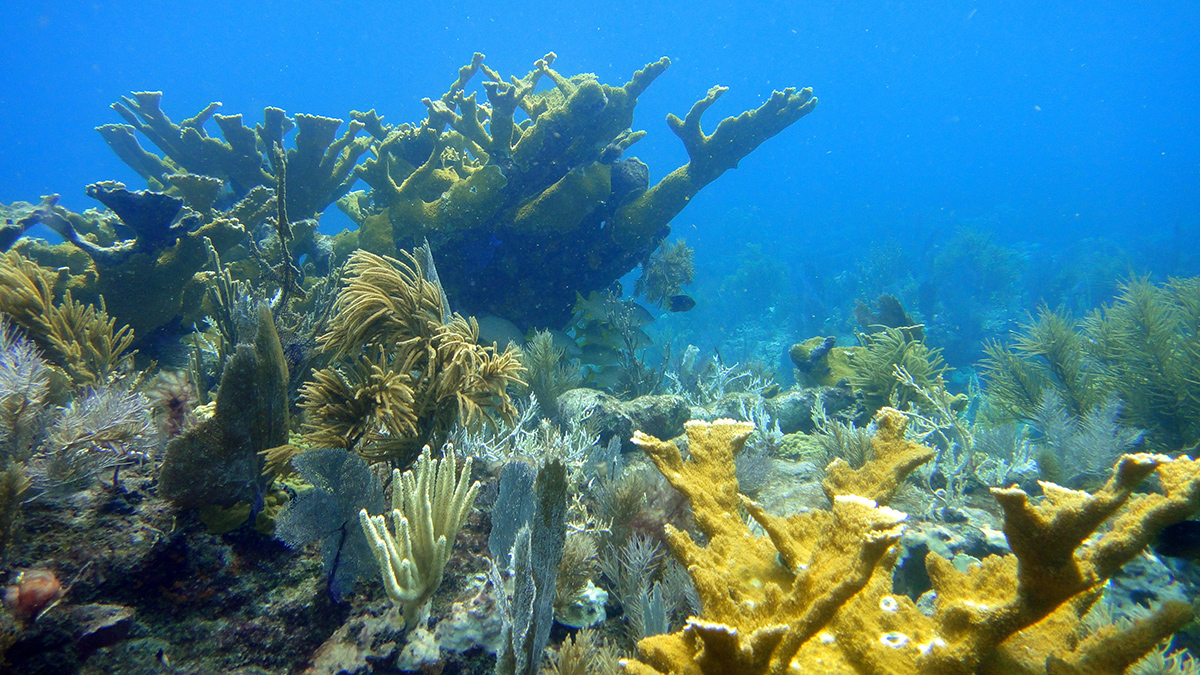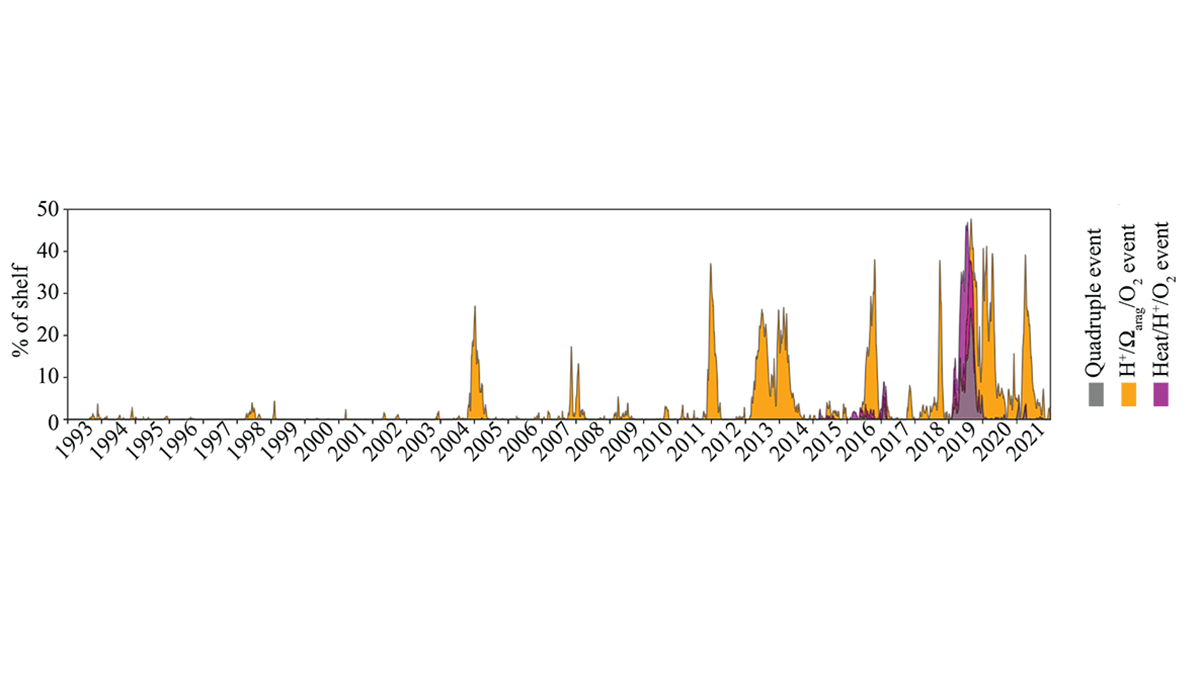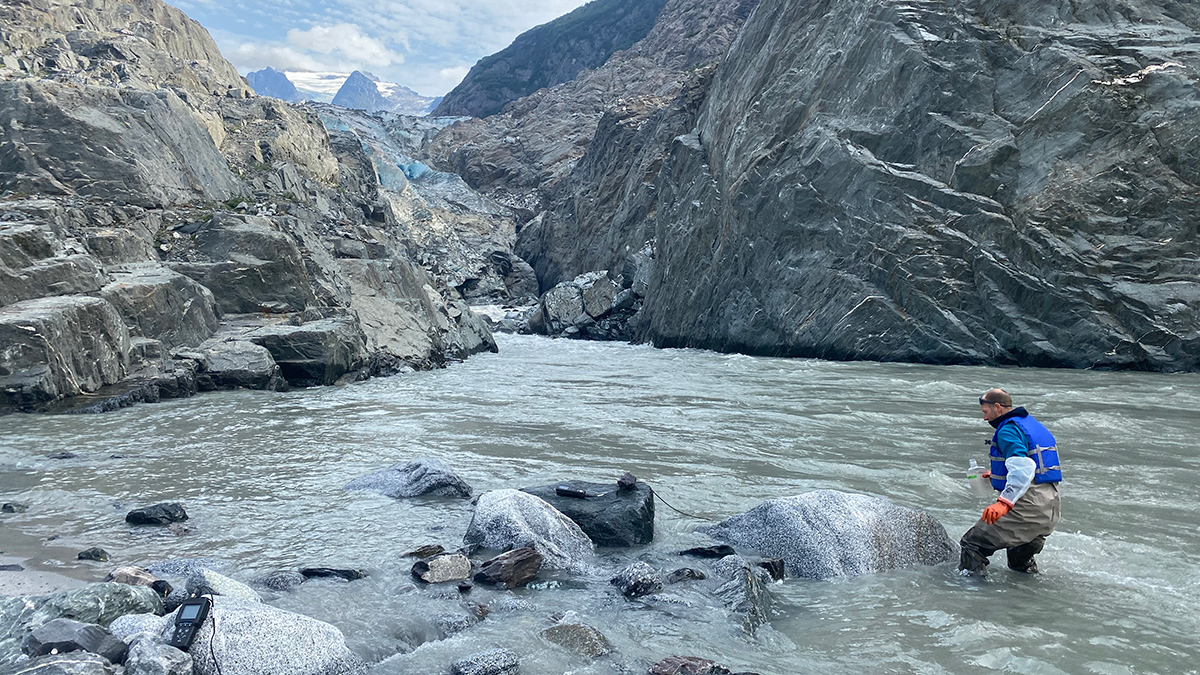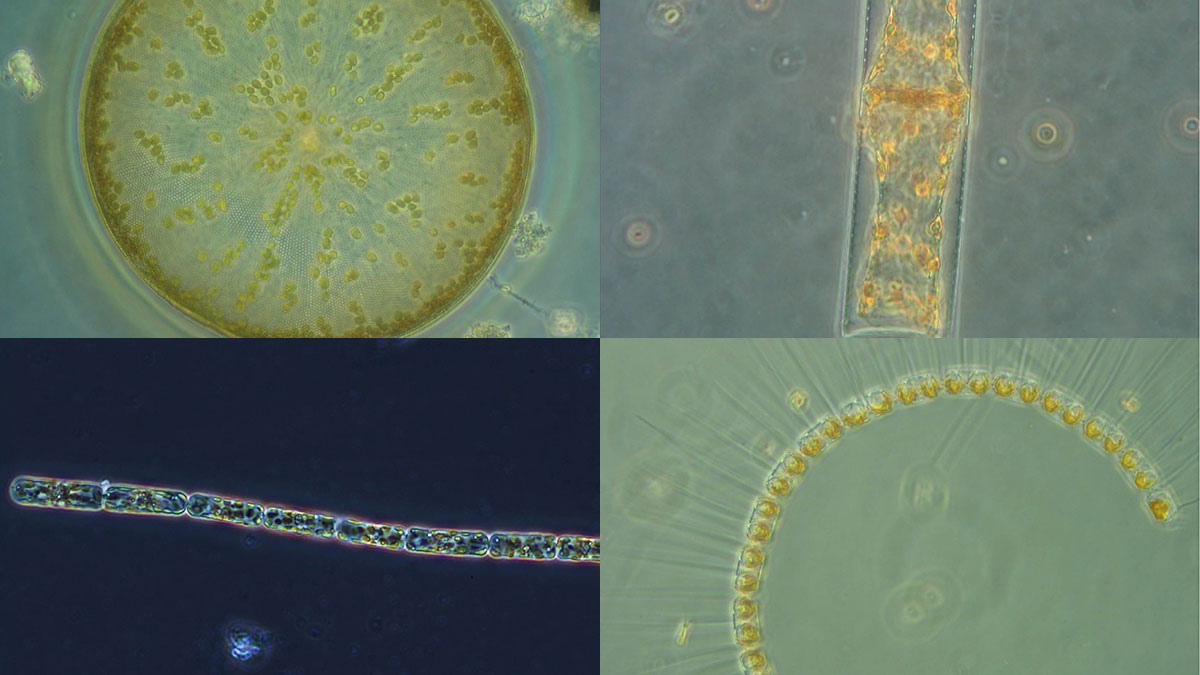Nuevos estudios muestran que los niveles de acidez podrían llegar a duplicarse para el 2100, poniendo en peligro los ecosistemas frágiles del gélido Océano Austral.
ocean acidification
Antarctica’s Ocean Acidity Set to Rise Rapidly by Century’s End
New research shows acidity levels could as much as double by 2100, imperiling fragile ecosystems in the frigid Southern Ocean.
Metals Could Reveal Corals’ Past Lives
Examining the role of stable metal isotopes in biological activities such as photosynthesis provides a promising new avenue of research into how coral responds to environmental stressors.
Shallow Seawater Chemistry May Make Reefs More Resistant to Ocean Acidification
Research from the Florida Keys reveals geographic and seasonal variation in the effects of acidification on corals.
Compound Extreme Events Threaten Marine Ecosystems
Short-term extreme marine heat wave events superimposed on stressors from longer-term climate change produce compound extreme events that impact the Gulf of Alaska ecosystem.
Measuring Carbon’s Flow from Land to Sea
A new study catalogs how dissolved inorganic carbon moves through southeast Alaska’s waterways.
Some Corals Are More Heat Resistant Than Thought
The vast genetic diversity of corals means there are some that may survive warming waters. Now scientists just need to find them.
Jacqueline Campbell: Studying Oceans from Above
Planetary scientist studies oceans with a combination of laboratory work and satellite imagery.
Ocean Acidification May Drive Diatom Decline
Diatoms contribute to global oxygen production, marine food webs, and carbon sequestration, but scientists predict that diatom populations will decline due to ocean acidification associated with climate change.
Reef-Building Corals at Risk from Ocean Warming, Acidification
Physiological limitations on regulating internal chemistry restricts corals’ ability to deal with ocean acidification and warming, thereby reducing resilience to continued environmental change.










